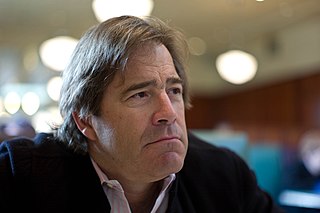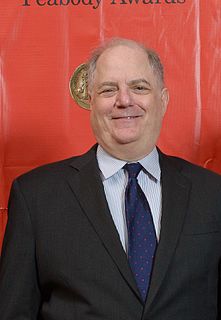Top 1200 Great Recession Quotes & Sayings
Explore popular Great Recession quotes.
Last updated on April 14, 2025.
I think Welfare Reform did more harm than good, but one piece of good it did was it changed the attitudes of Americans. If we look at voter surveys even before the recession, the idea that people are poor because they're lazy was much stronger in the early '90s than it was even before the recession. Now with the recession, everybody knows somebody who is poor through no fault of their own. So voter attitudes are more favorable than they've been since the '60s.
Obama has paid and will continue to pay dearly for betting on his stimulus package. Because of it, the Bush recession is becoming the Obama recession much faster than it would have had he adopted a more gradual approach to solving economic problems. By jumping in immediately, as he did, in order to increase government spending and pass eight years of Democratic dreams in one day, he made the public expect a solution.
When you're in the depths of a recession, that isn't the time when people want to challenge the system, they're too busy trying to survive. It's when they're told we're coming out of a recession, growth is returning, and they're not seeing the benefits of it, or they're not seeing them quick enough.
I promised to bring change to Washington. The underlying reason for the economic mess we're in has been building for years. It's a fundamental imbalance in which the top 1 percent now gets almost a quarter of all national income. We haven't seen income and wealth this concentrated since the late nineteen twenties, and we all know what happened then - the Great Depression. We'll never really get out of the gravitational pull of the Great Recession until we fix this basic problem.
The reason inflation was brought down to manageable levels, by the time of Ronald Reagan's re-election, was directly attributable to Jimmy Carter's very courageous act, hiring a Federal Reserve chair, with the charge to induce a recession. That recession was probably the reason he didn't win a second term.
There are times when a market such as housing, transportation or the stock or mortgage market keep rising and people with capital want to join in this growth. Soon the markets become overheated, partly because of the abundance of investment money and speculation. This is when the government should raise interest rates and increase the cost of borrowed money. Governments are shy about doing this because it could cause the very recession. Yet this is the best time to do this so that the inevitable recession never reaches the magnitude of the recent Great Recession.
The Adversity Index was created by msnbc.com and Moody's Analytics to track the economic fortunes of states and metro areas. Each month, the Adversity Index uses government data on employment, industrial production, housing starts and home prices to label each area as expanding, at risk of recession, in recession or recovering.
Canadians know that the promise of a recession didn't happen because of anything we did here. If you look at all the causes of the recession, problems in mortgage markets, the problems in the banking sector, the problems in government finance in countries like Greece, none of those problems were in present Canada.
"The ultimate recession": a recession caused not by failed regulation and bankers' greed, but by very high oil prices, food and water shortages, disappearing forests, accelerating climate change, forced migration and mass civil disruption...The long and the short of it, unfortunately, is this: more politicians still believe that economic recovery depends on continuing to live beyond our means (financially and ecologically) than on learning to live within our means. And that's why the ultimate "Perfect Storm" recession still looms on the horizon
In the large sense the primary cause of the Great Depression was the war of 1914-1918. Without the war there would have been no depression of such dimensions. There might have been a normal cyclical recession; but, with the usual timing, even that readjustment probably would not have taken place at that particular period, nor would it have been a "Great Depression.

















































